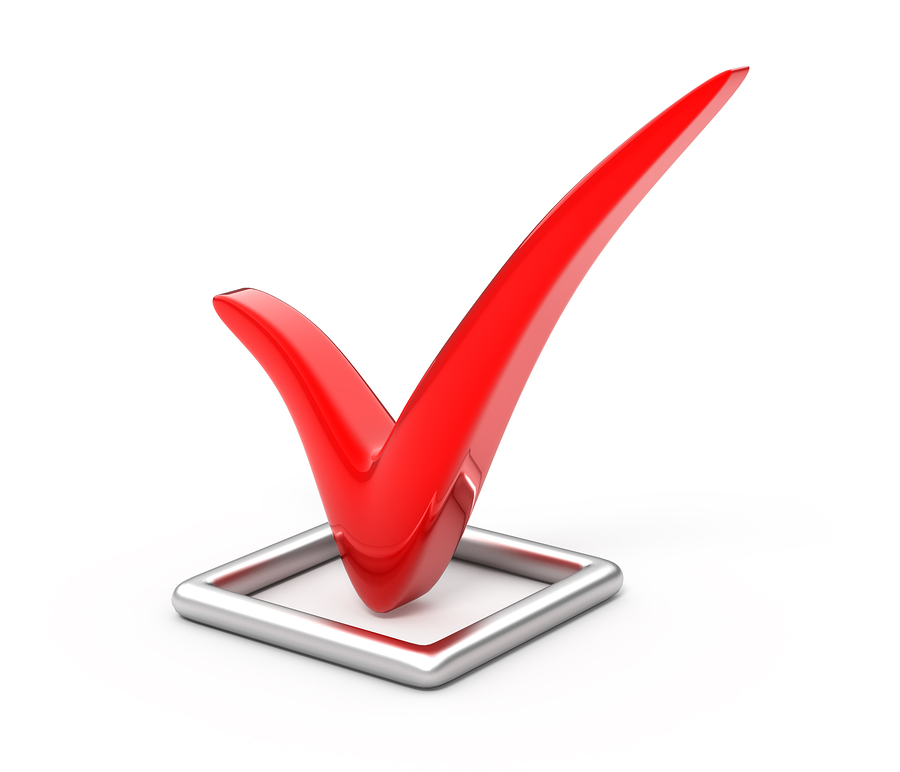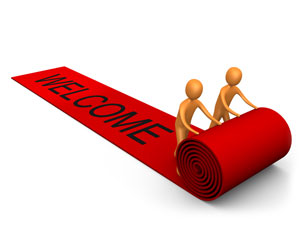One of my clients held her school gala last month. A few days prior, she asked how she could ensure that new parents would feel welcome attending the charity auction.
It's a good question.
The reception you give to new attendees can make a difference in whether they buy, and certainly makes an impression on whether they want to return.
At another auction meeting, one of the co-chairs -- a divorced single Mom -- said that when she drove to the auction the previous year, she sat for several minutes in the parking garage, mustering up the courage to enter.
"I was debating as to whether I really wanted to do this," she told me. She knew everyone else would be attending with their spouse. As a single person, she wasn't sure she'd fit in or to whom she'd talk. "I didn't know anyone," she explained.
Once she made the decision to enter, she was so warmly received that she took a leadership role in the auction the following year.
Do you have guests new to the event coming? Here are some ways to welcome them.
STEP 1: Prior to the event, call them.
Point blank tell them you're looking forward to meeting them, perhaps mentioning something specific.
"I'm REALLY looking forward to meeting/visiting you," you'll say, "I'm seating you at my table." Say it with enthusiasm! These are new people prepared to learn about your cause. They deserve your energy, and it will help build the anticipation.
If you're not holding a sit-down dinner, offer to make introductions, "Find me at the raffle table because I have someone I'm eager for you to meet."
STEP 2: At the event, assign people to meet and greet.
At a recent hospice auction, staff were assigned in pairs to greet guests at the hotel door, right after they'd turned their car over to the valet. Staff briefly chatted with them before pointing them in the direction of the registration table.
Another client asks three people (two Board members and an outgoing woman who has been involved in the organization for years) to mingle with new guests, being sure to introduce the newbies to others and spending time getting to know them.
You might consider identifying new guests in a specific way, such as a "new parent" ribbon or a subtle star on a name badge.
I've seen this done successfully, though some guests might not appreciate the gesture and instead feel like a target. Decide what works for your group.
STEP 3: After the event, pick up the phone. Nothing says "Wow!" like a prompt thank you.
If you need a slam-dunk strategy for next year's donations, this is it.
The day after the auction, set aside receipts and written thank you's. Instead, pick up the phone and start dialing. Here's the proof.
Fundraising colleague Gail Perry introduced me to Penelope Burk's work. Penelope, a well-respected fundraising expert, shared some statistics on board member thank you calls back in 2004 at an AFP International Conference.
Donors who received a thank you phone call from a board member within 24 hours of making the gift were 39% more likely than other donors to give the next time they were solicited.
39%!
And after 14 months, they were giving 42% more.
Talk about a super strategy for improving your auction donations for the following year....
Engage your Board members. Anyone Board member who felt uncomfortable asking for an auction item or sponsorship money should be enlisted in this activity. Provide them a script. They can start dialing to say, "Thank you so much for your donation last night! We are so thrilled you attended."
Three simple steps and these new buyers can become lifelong auction supporters.
----------
Benefit auctioneer Sherry Truhlar publishes "Benefit Auction Ideas," a bi-monthly e-zine for auction chairs seeking to improve the financial results of their charity auctions. Get your own copy -- and a F'REE gift! - at www.RedAppleAuctions.com.





















